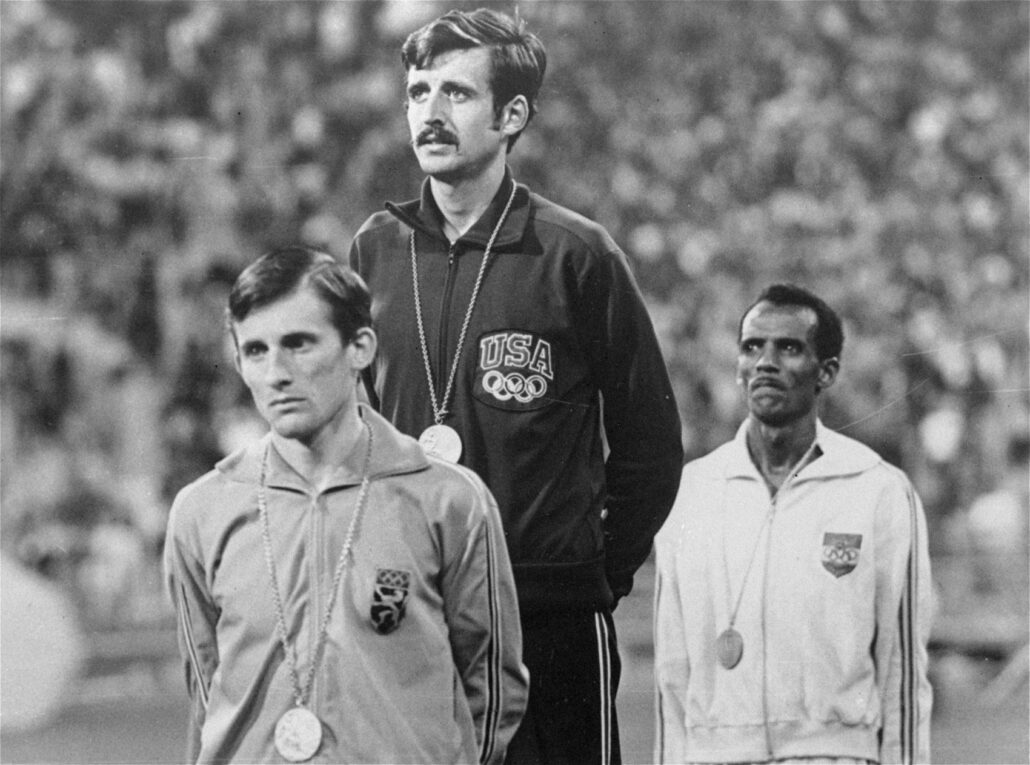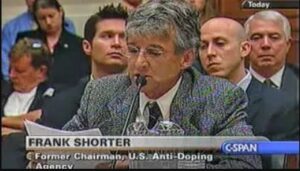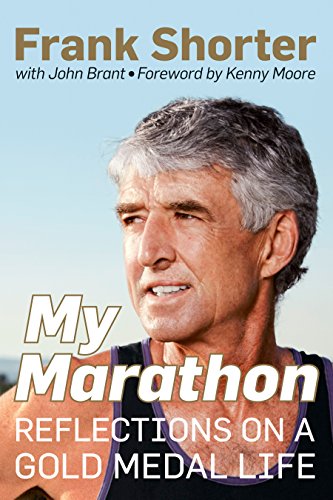Review: My Marathon
Three years after we graduated in 1969, classmate Frank Shorter would win the gold medal in the men’s marathon in the 1972 Summer Olympics. His book My Marathon, coauthored with John Brant, tells how Frank prepared for and won that race as well the fascinating story of his life before and after Munich.
In the month prior to the Munich games, the US track-and-field team went to Oslo, Norway to train at a site apart from other distractions. Once the team was in Munich, in the days prior to the marathon, Frank ran each of the segments of the course. Besides being an elite long-distance runner, he was also an elite sprinter. At the nine-mile mark, where he knew there were various twists and curves ahead, he made his surge. Once he was 200 meters ahead of the pack, the other runners could no longer see him. Being out of sight was a big psychological advantage.

You may recall that the Munich Olympics were held in September of that year. It became known as “Black September” when eleven Israeli Olympic team members were held hostage and then killed by Palestinian terrorists. The marathon and other Olympic events were delayed by one day so that a day of mourning could be observed. Fellow US marathon runner Kenny Moore told Frank that he was going to run in honor of the slain athletes; Frank relates that he was determined not to think about the terrorists.
The first chapters of the book tell of Frank’s childhood. Few know that he and his siblings grew up in an abusive household. Beginning in early adolescence, Frank found that running gave him an escape and a means of channeling his anger and his energy. Only decades later has he chosen to share his full story.
Frank ran an even faster marathon in 1976 in the Summer Olympics in Montreal. He came in second to a relatively unknown East German runner Waldemar Cierpinski. Decades later, after the Berlin Wall came down and East German files were opened to the public, it was confirmed that many of the East German athletes, including Cierpinski (number 62 in the East German State files), were using performance-enhancing drugs.

In 2000, Frank would be nominated to serve when the US Anti-Doping Agency was first created. While he was out on a lunchtime run, Frank was elected to be chairman. Much has been accomplished in the past twenty years to rein in some of the use of illegal doping as a result of that agency’s efforts.
My Marathon is a fascinating book about one man’s inspirational life.
Brad Gascoigne, Yale 1969 bgjaha@aol.com

